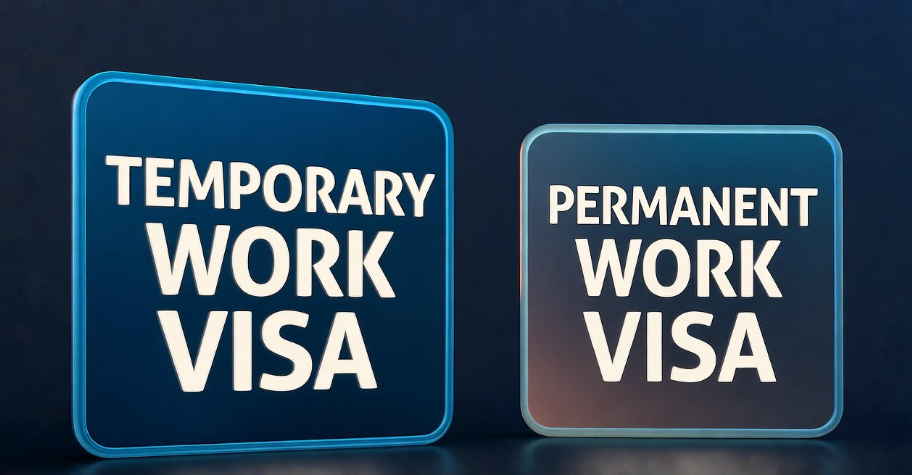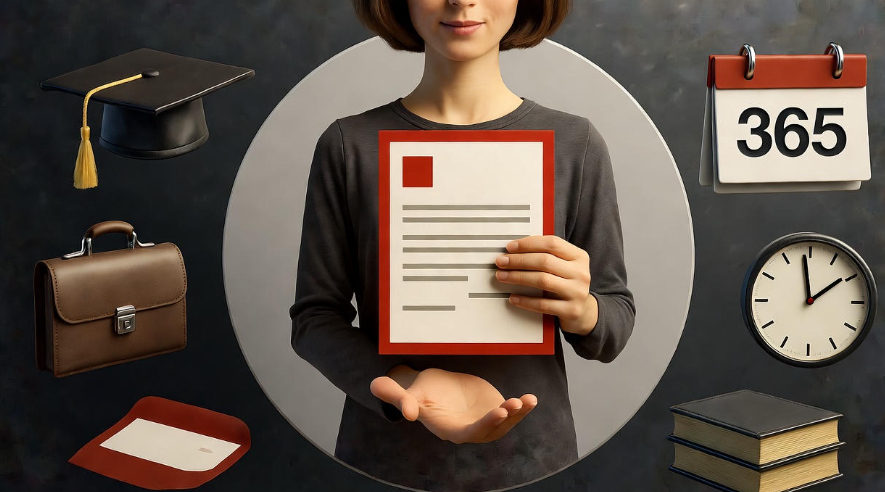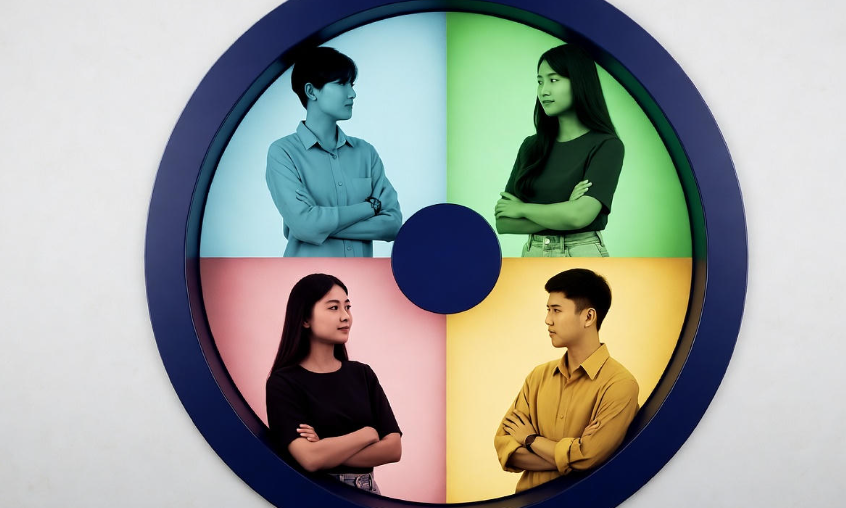Finding a job abroad is an exciting dream for millions of people around the world. The idea of working in a new country, learning a different culture, and earning in a stronger currency is something many of us think about. But before you pack your bags, there’s one big step you have to take — getting a work visa.
Now, the process might sound confusing at first, but don’t worry — in this article, we’ll walk through everything you need to know about work visa requirements for international workers in 2025. We’ll break it down into simple terms, add real examples, and share helpful tips that’ll make your visa journey easier. ✈️
What is a Work Visa?
A work visa is an official document or stamp in your passport that allows you to work legally in a foreign country. It’s usually issued by the government of the country you want to work in.
Some countries call it a “work permit”, while others call it a “employment authorization visa” — but they all mean the same thing: permission to earn money abroad.
Without this visa, even if you have a job offer, you cannot legally start work in most countries.
Why Do You Need a Work Visa?
Every country has its own labor and immigration rules. Governments use work visas to:
✅ Control who enters their job market
✅ Protect local workers from unfair competition
✅ Ensure foreign workers are qualified and safe
✅ Keep track of who is living and working in the country
So, getting the right visa isn’t just a formality — it’s the key to working legally and securely overseas.
Basic Work Visa Requirements (Common for Most Countries)
Even though each country has its own visa process, there are certain documents and conditions that are common everywhere. Let’s look at them one by one
| Requirement | Description |
|---|---|
| Valid Passport | Must be valid for at least 6 months beyond your stay. |
| Job Offer Letter | A letter from an approved employer confirming your job. |
| Work Contract | Details about your salary, duties, and employment duration. |
| Educational Certificates | Proof of qualifications related to the job. |
| Experience Letters | Documents showing your previous work experience. |
| Medical Test Reports | Some countries require medical fitness certificates. |
| Police Clearance Certificate | To confirm you have no criminal record. |
| Visa Application Form | Completed and signed visa application form. |
| Passport-sized Photos | As per the country’s photo requirements. |
| Visa Fee Payment Proof | Receipt of your visa application fee. |
Tip : Always double-check the latest checklist from the official embassy website of the country you’re applying to — requirements can change anytime.
Employer Sponsorship — The Core of Most Work Visas
For many countries like the USA, Canada, UK, Australia, and Germany, you cannot just apply for a work visa on your own. You first need an employer who is willing to hire you and sponsor your visa.
That means your employer will:
-
Submit job details to the immigration department.
-
Prove that no local worker was available for that job (in some countries).
-
Help with your paperwork or provide documents required by the embassy.
So before applying for a work visa, secure a genuine job offer from a company that can legally sponsor foreign workers.

Country-Wise Overview of Work Visa Requirements (2025 Edition)
Here’s a quick look at how work visa rules differ in some popular work destinations:
| Country | Visa Type | Main Requirement | Processing Time (Approx.) |
|---|---|---|---|
| USA | H-1B, L-1, O-1 | Employer sponsorship, bachelor’s degree | 3–6 months |
| Canada | Temporary Foreign Worker Program | LMIA (Labor Market Impact Assessment) | 2–4 months |
| UK | Skilled Worker Visa | Job offer with approved sponsor | 3–8 weeks |
| Australia | TSS (Subclass 482) | Skill assessment, English test | 2–3 months |
| Germany | Work Visa or Blue Card | Degree + job offer + German contract | 6–12 weeks |
| UAE | Work Permit + Residence Visa | Company sponsorship | 2–4 weeks |
| Japan | Engineer/Specialist Visa | Degree or relevant experience | 1–3 months |
| New Zealand | Accredited Employer Work Visa | Job offer + skill proof | 2–8 weeks |
Each of these countries has a different process, but most still require:
-
An employer offer,
-
Skill verification,
-
And sometimes, language proficiency.
Educational Qualification and Skills
Your education matters a lot when applying for a work visa. Countries usually expect you to have qualifications that match your job.
For example:
-
If you’re applying as a software engineer in the USA, you’ll need at least a Bachelor’s degree in Computer Science or related field.
-
For healthcare jobs in the UK or Canada, you’ll need professional licenses.
-
For technical jobs like electricians or welders, trade certificates or apprenticeship proof may be needed.
Some skilled jobs also need language proficiency tests like IELTS (for English-speaking countries) or TELC (for Germany).
Financial Requirements
Almost all countries want proof that you can support yourself financially before you start earning.
You may need to show:
-
Bank statements for the last 3–6 months
-
Proof of accommodation
-
Salary offer letter
Example:
-
Canada requires you to show enough money to cover your first few months of living expenses.
-
The UK asks for a minimum savings balance, unless your employer covers your costs.
This ensures you won’t struggle financially after landing in the new country.
Medical and Police Clearance
Safety and health are global priorities. So, before granting a work visa, most countries will ask for:
-
A medical test report from an approved hospital
-
A police clearance certificate from your home country
This is done to confirm that you are healthy, disease-free, and have no criminal background.
Visa Interview or Biometrics
Some embassies (like the US, UK, and Canada) require you to attend a visa interview or provide biometrics (fingerprints, photo).
During the interview, you might be asked:
-
Why do you want to work in that country?
-
How did you find your job?
-
What is your salary and job title?
-
Where will you stay?
Tip : Be honest and confident. The officers aren’t trying to reject you — they just need to confirm that your intentions are genuine.
Processing Time and Fees
Work visa processing time depends on the country, visa type, and your nationality.
Here’s a quick example chart:
| Visa Type | Average Fee (USD) | Processing Time |
|---|---|---|
| USA H-1B | $190 | 3–6 months |
| UK Skilled Worker | $800–$1,200 | 3–8 weeks |
| Canada Work Permit | $155 | 2–4 months |
| Australia TSS | $1,265 | 2–3 months |
| Germany Work Visa | $100 | 6–12 weeks |
| UAE Work Visa | $250–$500 | 2–4 weeks |
Always keep some extra budget for medical checks, translations, and document verification.
Common Reasons Work Visa Applications Get Rejected
Many applicants face rejection because of small mistakes. Here are some of the most common causes:
-
Incomplete documents
-
Fake or unverifiable job offer
-
Low educational qualification
-
Incorrect information on the application
-
Insufficient funds or financial proof
-
Failed medical or background check
Always double-check your file before submitting and make sure your job offer is from a registered employer.
How to Improve Your Chances of Getting Approved
If you want to increase your visa approval rate, follow these smart tips:
Apply for in-demand occupations (like IT, healthcare, construction, or hospitality).
Make sure your CV and qualifications are verified and match the job.
Show strong ties to your home country if needed (family, property, etc.).
Maintain clear communication with your employer and embassy.
Submit all documents in English or official language translations.
Temporary vs Permanent Work Visas
You should also know the difference between short-term and long-term work visas.
| Type | Duration | Purpose |
|---|---|---|
| Temporary Work Visa | 6 months to 3 years | For short-term contracts, seasonal or project-based jobs. |
| Permanent Work Visa | Indefinite | For skilled professionals planning to settle and work long-term. |
Example:
-
The USA H-1B is a temporary visa (up to 3 years).
-
The Canada PR (Express Entry) is a permanent work visa type.
After You Get the Work Visa — What Happens Next?
Once your visa is approved, you’ll get a visa sticker or letter allowing you to travel.
When you arrive in the new country:
-
You’ll go through immigration clearance.
-
You might need to register with local authorities.
-
Your employer will complete residency or tax registration.
Within a few days, you’ll receive your work ID or residence permit — and then you can officially start working!
Work Visa Tips for 2025 and Beyond
The global job market is changing fast. Here are some fresh 2025 insights:
✅ Remote Work Visas – Many countries (like Portugal, Estonia, and Barbados) now offer digital nomad visas for freelancers or remote employees.
✅ Green Skill Visas – Countries like Germany and Canada are prioritizing workers in renewable energy and sustainability.
✅ AI & Tech Jobs – The demand for AI engineers, data scientists, and cybersecurity experts is skyrocketing.
✅ Faster Online Applications – Most embassies now allow fully online visa submissions and digital document uploads.
Frequently Asked Questions (FAQs)
Q1: Can I apply for a work visa without a job offer?
In most cases, no. You’ll need an employer to sponsor you. However, countries like Germany (Job Seeker Visa) or New Zealand allow job-seeking visas where you can look for work after arrival.
Q2: How long can I stay on a work visa?
It depends on your visa type — usually 1 to 3 years, and many can be renewed or extended.
Q3: Can I bring my family with me?
Yes! Many countries let you bring dependents (spouse, children) once your work visa is approved, but you’ll need to show extra financial proof.
Q4: What happens if I lose my job abroad?
You usually have a grace period (30–90 days) to find a new employer or leave the country. Always inform immigration if your work situation changes.
Q5: Can I change employers on the same visa?
Sometimes yes, but it depends on your visa rules. For example, in the UK, you must update your visa if changing employers.
Q6: Do I need a lawyer or agent?
Not always. You can apply directly if you understand the process. But if your case is complex, a registered immigration consultant can help.
Final Thoughts
Applying for a work visa isn’t as hard as it looks — it just takes patience, preparation, and honesty. Every country has its own system, but the basic rule stays the same: be qualified, have a real job offer, and follow the official process carefully.
If you gather your documents correctly and apply through the right channel, you’re already halfway there. Remember — your dream job abroad starts with a single, well-prepared application.




